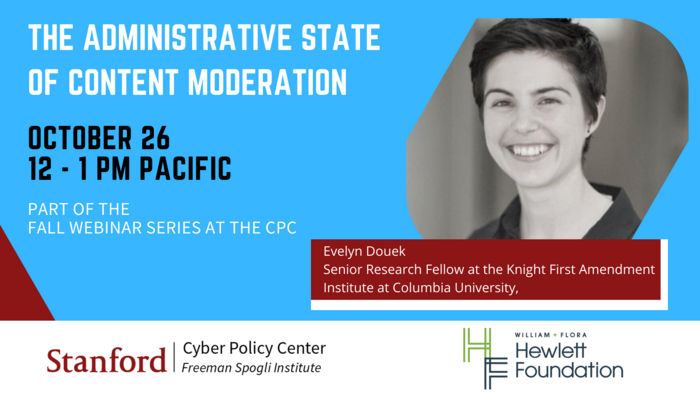C.I.A. Director William Burns Encourages Students to Pursue Public Service with Humility and Open Minds
William Burns has been many things in his long career: U.S. ambassador to Jordan and later Russia, deputy secretary of state, career ambassador, and president of the Carnegie Endowment for International Peace, among others. But with his confirmation on March 19, 2021 he added a wholly unique title to his already remarkable list of accomplishments: the first diplomat to ever serve as director of the Central Intelligence Agency.
Burns’ career path was not always clear. As a young college graduate in 1981, he received an offer from the Foriegn Service, but hesitated to take it. His father, a Major General in the U.S. Army, wrote him a note with the advice, “Nothing can make you prouder than to serve your country with honor.”
At his recent visit to the Freeman Spogli Institute for International Studies, Burns offered the students in attendance similar council about pursuing careers in public service. A recording of his remarks is below.
“I’m a believer in the virtues of public service and what it means to our country,” Burns told the audience.
He recognized that this moment in American policy at home and around the world is one of transition and uncertainty and that the current climate of distrust between the American public and government has had a tremendous impact on domestic politics. Abroad, the rise of China cuts across all sectors of U.S. geopolitics, while even larger, non-state challenges such as climate change, global health insecurity, and the rapid advancement of technology pose even greater existential challenges.
Still, Burns has faith in the unique relationship that the United States has to its public service institutions.
“It’s my obligation as a leader, and your opportunity [as potential future public servants] to demonstrate that we can produce institutions in this country that are professional, apolitical, and devoted to the national interest and doing things in accordance with American values,” he emphasized.
In his jurisdiction over the C.I.A, Burns has already set benchmarks to ensure the agency remains competitive and serves its purpose of providing policymakers with high-quality, timely intelligence which supports their decision-making process. He is committed to streamlining the hiring process at the C.I.A. and making it more attractive to top talent, as well as diversifying the workforce and drawing on expertise from across all types of professional backgrounds and abilities. “We’re not going to be an effective intelligence organization if everyone at the C.I.A. looks like me,” he quipped.
Keeping the bigger picture in mind, Director Burns reiterated one of the underlying principles that has guided his approach to public service. “Both [diplomacy and intelligence] require a sense of humility. There are perspectives in the world that are not identical to ours. You don’t have to accept or indulge those perspectives, but understanding them is the starting point of effective intelligence work and effective diplomacy.”
Read More
Director Burns shared how he is applying the lessons he learned as a diplomat to make the intelligence community an effective organization for the challenges facing policymakers today.











